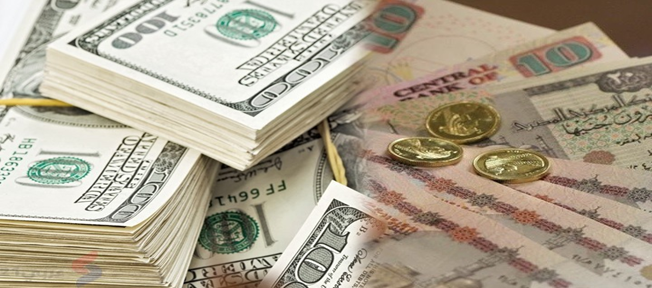
Moody’s yesterday (Thursday) downgraded Egypt’s credit rating by a notch to ‘Caa1’ from ‘B3’, citing the country’s worsening debt affordability, reported Reuters.
Egypt has been facing an economic crisis with record inflation and a chronic foreign currency shortage, and a borrowing spree over the last eight years has made external debt repayments increasingly onerous.
“Moody’s expects the materialization of asset sale proceeds at the central bank to help restore the economy’s foreign currency liquidity buffer,” the credit rating agency said, placing Egypt’s outlook at ‘stable’.
The outlook reflects the agency’s expectation that Egypt will have continued access to official financial support from the International Monetary Fund under its $3 billion arrangement.
Egypt has imposed import restrictions to remedy the shortage of foreign currency, while at least two national banks have suspended the use of Egyptian pound debit cards outside the country to stop a drain on foreign currency.
The country, which is preparing for elections in December, devalued its currency by more than half in the year to March.
Egypt must devalue again
Egypt will “bleed” precious reserves unless it devalues its currency again, the managing director of the International Monetary Fund said, as she praised other steps her institution’s second-largest borrower has taken to right its stricken economy.
Egypt’s devalued the pound three times since early 2022, with the currency losing almost half its value against the dollar. Georgieva said it’s delaying the inevitable by holding off from doing so again and the longer it waits, the worse it will get.
‘Sooner the Better’
“The sooner we can reach an agreement on the road map for this the better,” she said.
“The issue here is very simple. Egypt would bleed reserves protecting the pound and neither the country nor overall the environment is such that this is desirable. That’s a problem that has to be solved.”
Egypt’s net international reserves last year fell to the lowest level since 2017 before stabilizing in recent months to reach $35 billion in September — still down by more than a fifth since their 2020 high.
Keeping the pound stable has come at a cost, however, draining the economy of foreign exchange through a drawdown of commercial banks’ net foreign assets, which shrank in August by over 5% to $13.1 billion, according to calculations by Cairo-based HC Research.
Egypt’s long-term foreign debt rating was downgraded late Thursday by Moody’s to Caa1 from B3, seven levels into junk.
The ratings agency cited the government’s “worsening debt affordability trend and the persistence of foreign currency shortages in the face of increasing external debt service payments over the next two years.”
Egypt has some of the highest bond yields in the world, underscoring how wary investors are of owning their debt. Egypt’s dollar notes have an average yield of 18.5%, according to Bloomberg indexes.
Debit card use suspended
At least two Egyptian banks have suspended the use of Egyptian pound debit cards outside the country to stop a drain on foreign currency as the country’s currency shortage worsens.
Arab African International Bank sent a notice to customers on Wednesday and Arab International Bank sent one on Thursday announcing the suspension, according to several customers.
A customer representative for Arab African International Bank confirmed the move, saying it was due to the country’s foreign exchange shortage.
One banker in Egypt said all banks were facing similar problems as a result of the currency shortage, but that each was taking decisions separately.
A substantial number of debit card holders had been using cards to make bulk purchases, often in the United Arab Emirates, of gold, mobile telephones and other products to take advantage of the Egyptian pound’s low official exchange rate.
Debit card transactions are charged at the official rate of about 31 pounds to the dollar whereas on the black market a dollar sells for around 40 or 41 pounds. Egypt has kept its currency fixed against the dollar since March despite a widening gap with the black market rate.
“Sometimes they just send the cards (without leaving Egypt), and they buy things with them. You find there are four or five people from the same family,” the banker said.
Other banks were likely to introduce similar restrictions next week, the banker added.
Banks in recent months have also been tightening up on the amount of foreign currency clients can buy in Egypt and on how much can they can charge to their credit cards while abroad.



